Suicide Has Infantilized the Healthy Pondering of Death
Then the grave said to me, "Remember me as you pass by. As you are now, so once was I; As I am now, so you must be, Therefore prepare to follow me."
Overshare Time: In 5th grade I went to the State spelling bee championship after clutching the dub on my school, then region, then county. I was one of about 30 kids, and basically the only non-Indian or Asian. I remember being at a convention center, waiting in the lobby by myself as the Indian kids were drilling flash cards with their parents. I distinctly remember an Indian girl misspelling “thyroid” and watching as her father berated her even as she cried. Their flash cards rained down after he threw them in his little daughter’s face. There was even a news crew there. I never studied or prepared, essentially coasting off being an avid reader as a child.
Which became evident almost immediately as I got out in like the third round after misspelling “mischievous” (I put an I after the V). So instead I got to sit on stage, blinking back tears, and watch the Asians and Indians battle and misspell words that were much easier (I was specifically raging after seeing “milquetoast” wipe out 5 Indians because they weren’t white enough to realize it was a French loan word. Similar carnage for “lieutenant” and “boutonniere”).
When I got home that night, I laid prostrate in front of the family Christmas tree and started sniffling amidst the tinsel foil and LED lights. I told God I was sorry for wasting the talent He gave me, for putting on such a pathetic show in front of my family, for being arrogant enough to think I could actually win.
At the end, I told God I was so ashamed of how I performed that I would be killing myself that very night. I told him that I deserved hell for my actions, and to relieve my parents of the embarrassment of raising a child that couldn’t spell “mischievous”. I clenched my tiny, clammy little fists so hard that my fingernails drew blood. My teeth crackled and popped with the enraged grinding.
Was this healthy for a 5th grade kid? Honestly, it probably was. Kids are infamously bad at regulating their emotions, and this was my own way of dealing with losing, especially because I didn’t allow myself to question God’s decision to let me misspell
”mischievous” after asking Him for weeks to let me win. My dad had to talk to me about it after I told them the only thing I ever wanted for Christmas again was a dictionary.
-
I mention this because it was my first brush with suicide, and death in general. As I’ve gotten older, I’ve had friends and family commit suicide. I’ve toyed with the idea myself throughout puberty, never quite summoning the courage to really do anything about it. I’ve also seen society’s perspective and opinion of the act shift.
Unfortunately, modernity has deviated from the historical human (or European, at least) opinion of suicide: clear and explicit disgust. Suicide has also completely ruined the Western perspective of Death.
Pondering Death is healthy
The old joke goes that the world’s oldest profession is prostitution. I think it’s really Death. War, famine, disease, government, murder, all of these things have walked right alongside humans since before time began. Every world religion ruminates on death, a typical selling point is that they will remove the pain of Death that haunts all of us. Some of the oldest writings and oral traditions ever preserved explicitly deal with Death.
Our culture today has a morbid obsession with pushing death to the perimeter of our lives. In America, death is something that steals away a few unlucky souls on the highway or in the ghetto every year. For the rest of us, we’ll live forever! My sophomore year of college, a popular sorority girl unexpectedly died over spring break. It was clear to me that nobody in her friend group had ever considered the fact that Death was something that could happen to them, that it was not just some gimmick for the poor and old. The shellshock that followed her passing was not a part of the typical grieving process, it was more like a harrowing revelation and a wakeup call for people who had previously spent their lives in a cushy, expensive bubble that had managed to fend tragedy off until that point. I was vaguely friends with a few of her friends, they were truly never the same after encountering death in a way that completely transcended bereaving the poor girl. Some of them quit vaping and alcohol entirely, others became addicts. The whole experience was like showing someone who loves ball-park hotdogs how they’re made in factories.
I only share this story to highlight that the Ancients had this figured out a long time ago, and the refusal to come to terms with Death in today’s world is relatively new.
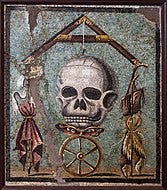

In the Western world, remembrance of Death has distilled into two distinct cultural traits. In Western Europe, Catholics are familiar with memento mori, Latin for “Remember Death”.
This is also where “Gothic” style (and to a lesser extent, architecture) comes from.
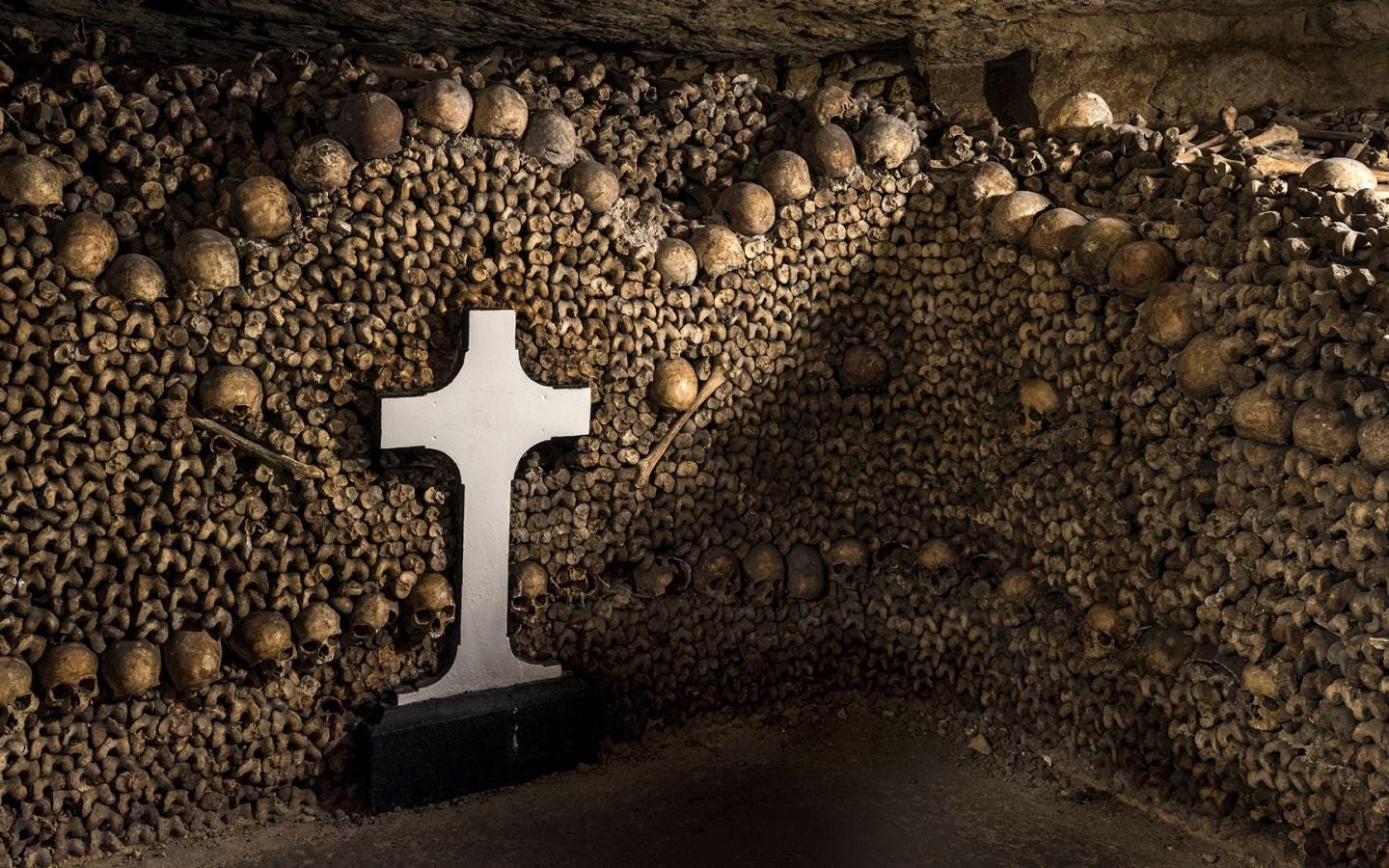
In the East, there’s not really a unified Orthodox aesthetic movement acknowledging death to my knowledge. Instead, there’s some beautiful thoughts from great men.
Most Christian traditions teach, in fact, that Life is but preparation for Death.
Ecclesiastes 9:12 states, “For man certainly does not know his time: like fish caught in a cruel net, or like birds caught in a trap, so people are trapped in an evil time, as it suddenly falls on them.”.
James 4:14 says, “Why, you do not even know what will happen tomorrow. What is your life? You are a mist that appears for a little while and then vanishes.”
Once more in the Old Testament, “[Death is] rising with the light that kills the poor and needy, and in the night is as a thief.”(Job 24:14).
I only picked Christian sources because I know them best, but you get the idea. Pondering and reflecting on death is a very ancient, very healthy practice. Some of the greatest men (and women) to ever draw breath on the planet spent considerable portions of their conscious hours meditating on their deaths.
Suicide is a Relatively Modern Invention.
Obviously people killed themselves before the Industrial Revolution. However, they certainly did not kill themselves in the large numbers we see today:
Suicide burst into the spotlight right about Y2K, probably as a result of the last remnants of the best of 20th century society starting to dim forever. It’s hard to find sources on suicide rates before about 1850, largely because instances were just so rare. People simply didn’t kill themselves very often at all before then.
Why?
For one, people were generally happier. More importantly, life was not guaranteed in those days. Life was something to be fought for, and there was no promise you’d win. Disease ravaged the United States really until about the 1940s, carrying away all manner of toddlers, adolescents, healthy men in their primes, and the usual dredges of elderly. Starvation took many more. People had to wake up with a mission every day to stay alive, especially those outside major urban areas. How can you explain suicide to someone who lived on a prairie farm in Iowa in 1847, where rolling an ankle in a blizzard means you freeze to death? Or Colorado bushmen who went down swinging with Rocky Mountain fever? They didn’t even believe in depression (“melancholy”) as a legitimate reason to neglect your duties to your family and society, much less suicide.
They’d view suicide the way the Ancients did, with disgust.
For most of human existence, life was a gift. If you were still breathing, it was because some God(s) needed you to do so. Throwing that away for selfish, passing reasons would strike the Ancients as bizarre the way finding a dress in your son’s closet is bizarre. You might feel a twinge of pity, buried under a larger scoop of hatred and disgust. The Ancients and Medievals felt the exact same way about even the thought of discovering the corpse of a man who killed himself.
One example of this is found in the Inferno:
The souls of the suicidal are tormented deep in the 7th circle of hell. They’ll be cursed for eternity by harpies that will rip and tear the limbs off their bodies as they beg, plead, and shriek in unending agony.
The message here is clear: an attempt to separate body from soul will have the two irreparably welded together. Those who seek to discard their bodies to free their souls will instead be attached to their bodies in unbearable torment for all time.
That is how they viewed suicide.

So where does that leave us? Suicide was condemned nearly universally in pre-Modern Europe. Today, it is a leading cause of Death in the West.
Why?
For one, society has infantilized Death. We live in a sterile, artificial world where Death is more like a plot point to an engaging story than something we really have to worry about. When we do encounter it, its in gags/plot points in media, a mechanic in video games, or just saying goodbye to your pre-historic grandparent at the hospital. It’s just a little niche artistic topic that we dabble in occasionally. Almost nobody today can say it takes up much space in their head at all.
Society also can’t answer questions about death like it used to. Ask a modern person what happens when they die, the response will invariably be drivel about “stardust” and “endless sleep” or whatever opinion Neil DeGrasse Tyson has authorized at the moment. This empty grandstanding is more a frantic cry for help than an attempt at cosmology. Some moderns have refused the topic all together, attempting to cleave some wonder out of cliché statements like “we’ll just have to find out xD”. To the Ancients, that would be like “waiting to find out xD” if your crops failed or not. The lack of urgency portrays insulation and privilege.
Because we are so removed from Death, suicide has become a card to play. In fact, its the trump card. Whatever argument you were having, whatever disagreement or fight, you instantly win for all time when you kill yourself. Media like 13 Reasons Why really enables this fantasy. You get unlimited attention and mourning, where everyone agrees with you and holds you in high regard, and all you have to do is die.
There’s 2 demographics that are responsible for the majority of suicide attempts: teenage girls and middle aged men. Guess who is responsible for the majority of “successful” suicides? Teenage girls, in their ignorance, see Suicide as a radical solution to their problems. They get caught up in the theatrics, a tailspin of self-indulgent fantasy. They imagine the world if they survive, maybe discretely letting a family member know. They salivate over “reluctantly” revealing self-harm scars, of getting the shitty infinity symbol tattoo on their wrists as a shitty little secret code to their fellow shitty little buddies. So they toy with the idea, they take weeks to “plan” their suicide. They romanticize it, relating it to all the HECKIN MEDIA where suicide is seen as some bold maneuver to secure victory. They stoically get their affairs in order, pondering who they’ll clue in on their attempt. The whole thing amounts to a parade of self pity and masturbation.
Meanwhile, middle-aged men just have enough one day. They go home and blow their heads off, and that’s that.
I think it’s also important to note that this does relate to nobody being able to take anything seriously, including calls for help leading to Death. In fact, people our age mock the threat of suicide itself as ironic humor. How many times have you heard someone “jokingly” say they were going to kill themselves? That behavior would be so deranged to someone from even 100 years ago. Today, threatening suicide is an ironic punchline. Its a “safe edgy” meme to recite for chuckles. I’ve even seen people pathetically trot out “ironic” suicide threats or memes that were quite obviously a cry for help, but they deep fried the whole thing in irony as an out:

Part of the allure of suicide is that it forces everyone to finally take something about you seriously. People can brush off all the signs that you’re in distress, they can mock you for the way you feel, they can humiliate you for your problems, but they cannot undo the finality of death. They cannot unsee your destroyed corpse. They cannot unread the tell-all note where you get to settle the score for all eternity. Modern people are drawn to suicide because it’s the final I told you so to everyone that neglected them. Combine that with a lack of purpose, and the whole thing becomes quite appealing.
Mass sh**tings could be seen as an extension of this, one last middle finger to the world with the one thing that will get it to put the phones down and pay attention. Think of Eric and Dylan, two people that were never taken seriously until they did something very, very serious.
In short, suicide has ruined Death in today’s world. It has removed all the tragedy and romance of a good death after a life well lived, and replaced it with this feminine, passive, pathetic exit following a pathetic life. A real man should never even briefly consider suicide, under any circumstances.





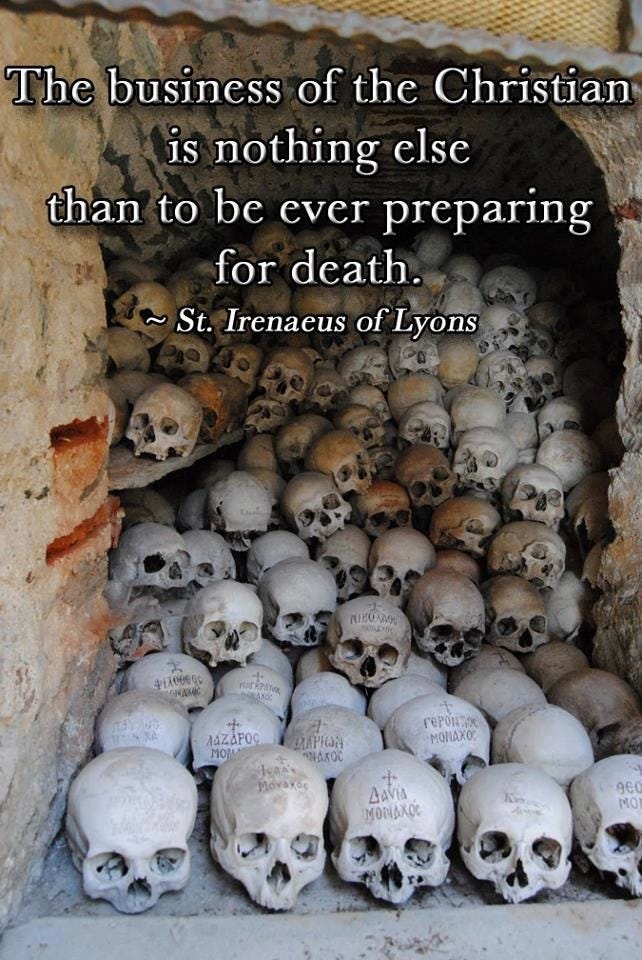

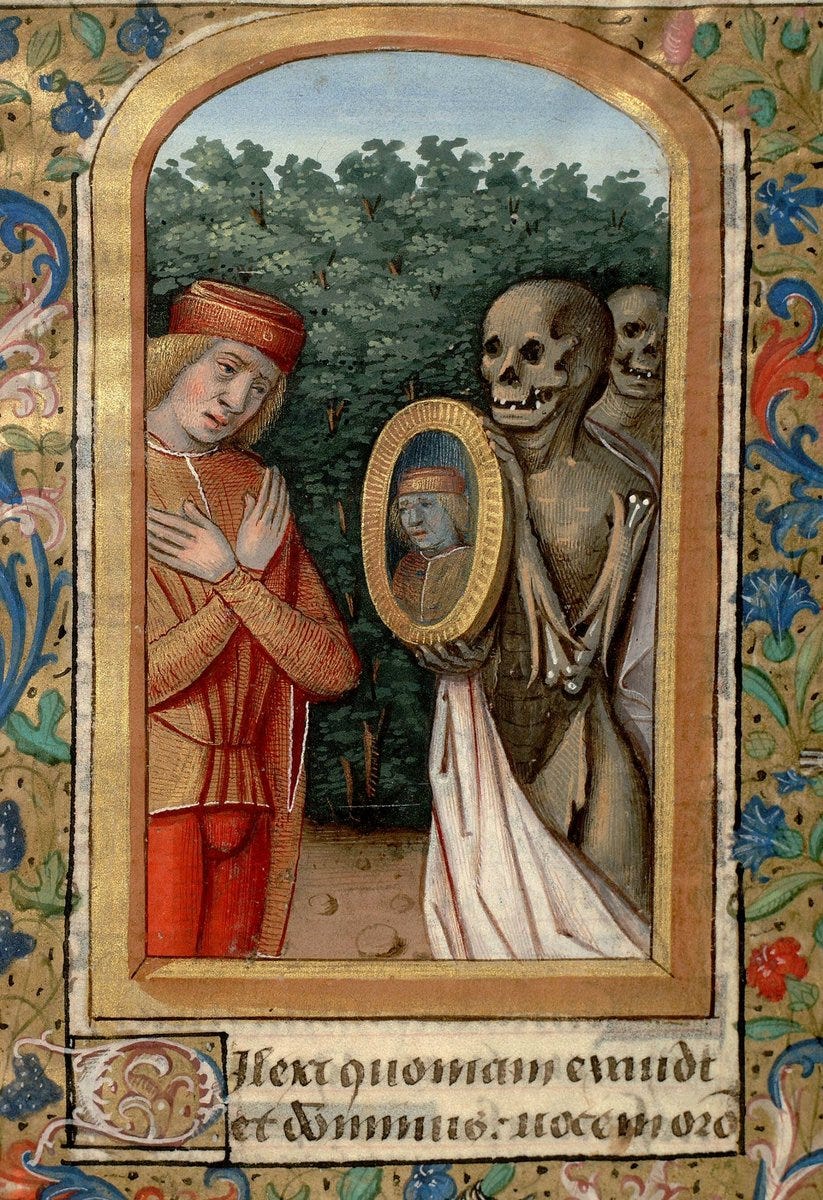

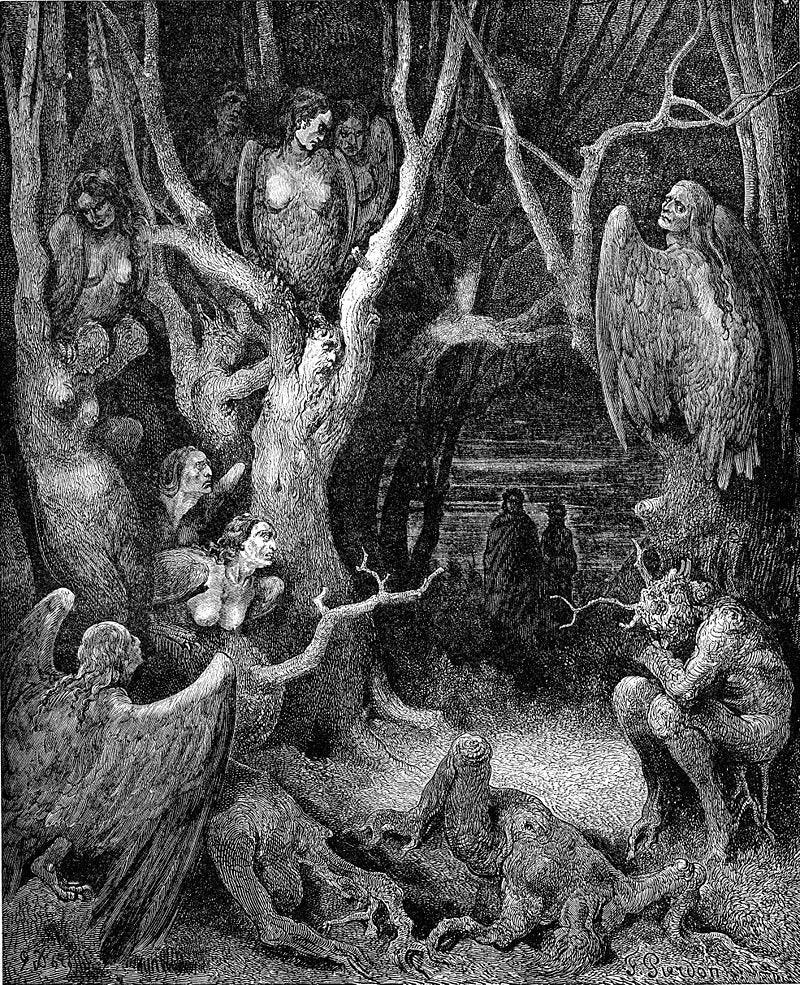

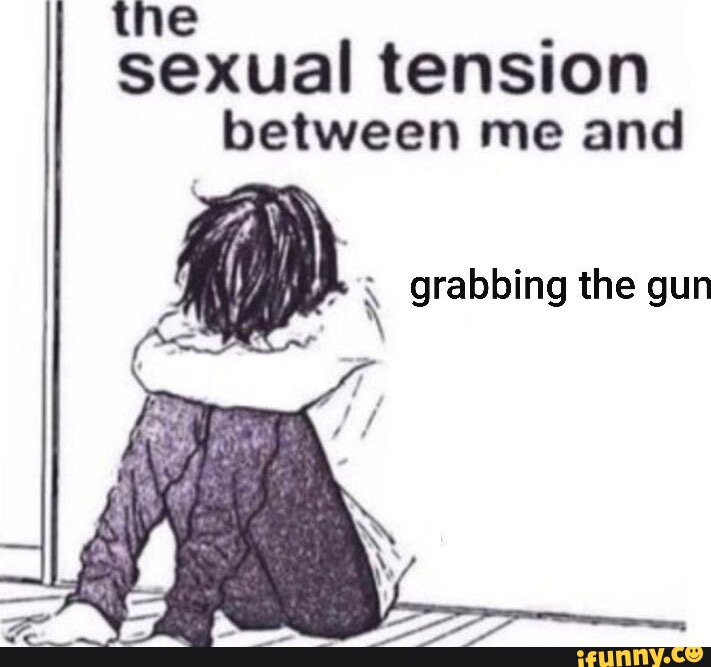
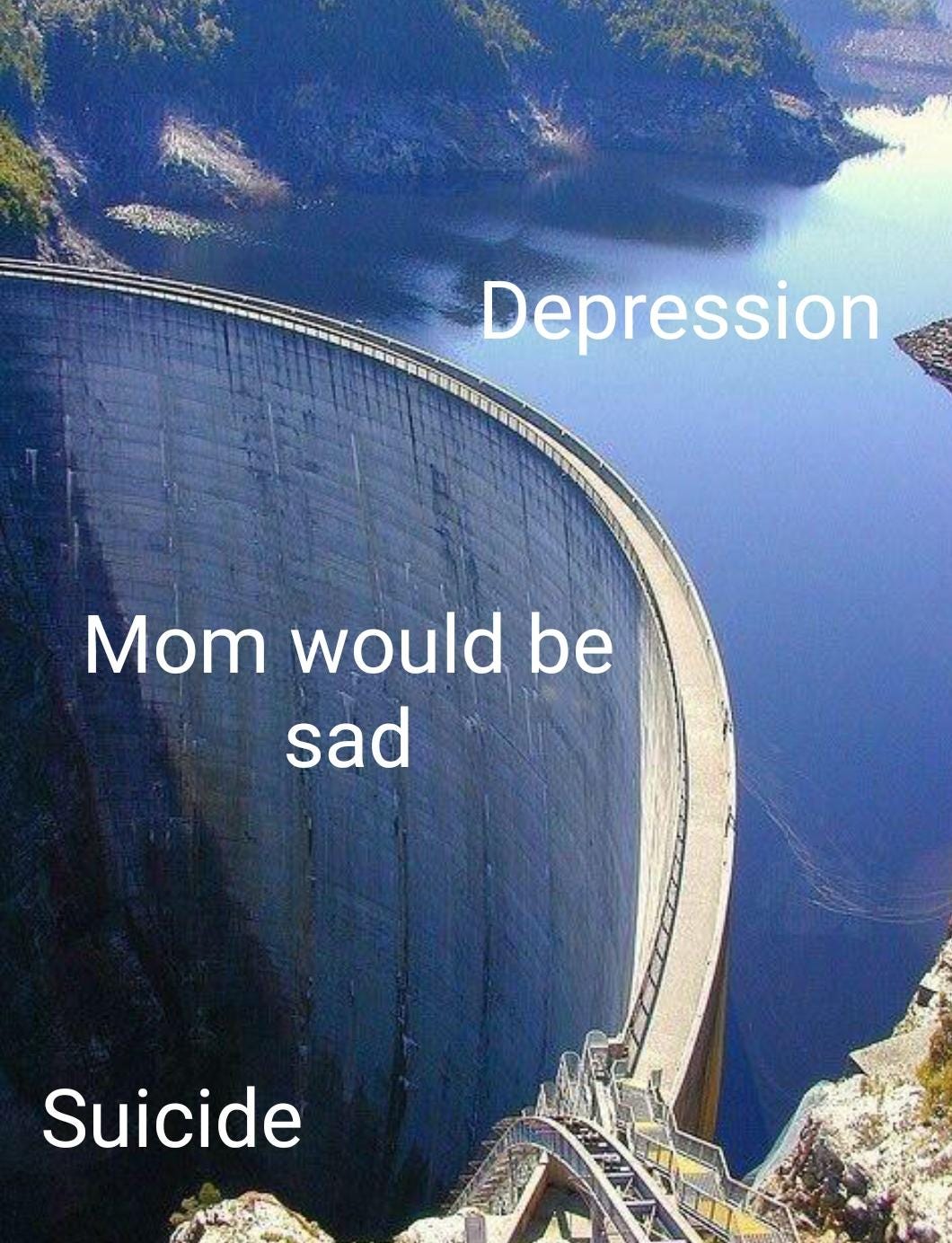

“Suicide is a temporary solution to a permanent problem”
Yet another symptom of ironic humor rot, it's very sad to see the state of what is considered "relatable" humor. No, I do NOT want to blow my head off with a shotgun every waking moment because I'm too pessimistic and cynical to find any joy in life! I love living, even if every day isn't filled with constant dopamine/serotonin release!